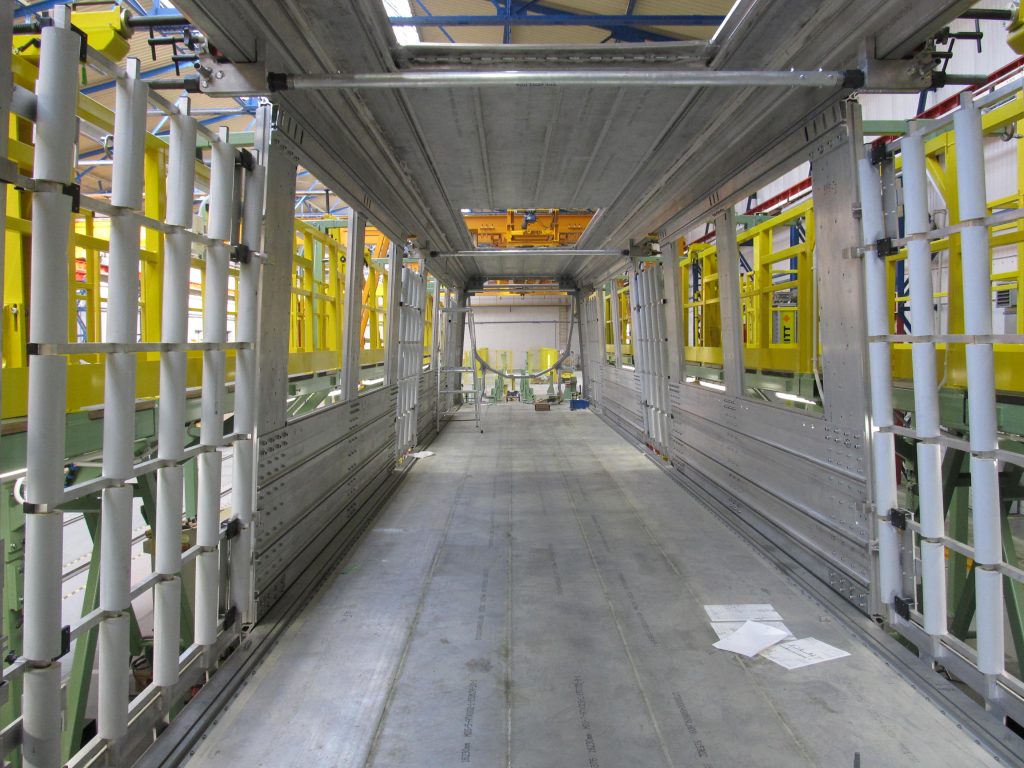Construction Business News ME reviews the production of the much-anticipated Riyadh Metro
French company, Alstom, has started the production of trainsets for the upcoming Riyadh Metro in its Katowice plant in Poland.
The contract was awarded to FAST consortium, which Alstom is a part of, two years ago by Arriyadh Development Authority – the executive arm of the High Commission for the Development of Arriyadh. The contract included the design and construction of lines four, five and six of the network.
Dr Yasser Omar, Alstom’s managing director for Saudi Arabia, says: “Riyadh is the most prestigious of many Alstom integrated metro projects including combinations of integrated control centres, signaling, trains, power, tracks and other sub-systems.”
Over the course of two years, the Katowice plant will be manufacturing all 69 of the Metropolis trainsets. The plant also comprises over 1,000 employees, it is one of Alstom’s largest train manufacturing sites in the world. It previously built metros for Amsterdam, Warsaw and Budapest.
The maximum speed of Riyadh Metro will be 80 km/h (only applied in long distance tracks). The driverless train will be 100% motorised and composed of two cars per set and is 36 metres long. “The overall system is designed according to highest international standards,” says Dr Omar. “The movements of the trains are controlled by state of the art signaling systems controlling both the speed and the distance between each train.”
To ensure safety, CCTV is installed in the trains and on the platforms. He explains this will help employees in the control centre to monitor real time incidents and prevent them as soon as possible. “Advanced passenger information systems will deliver real time information to the passengers through screens and loudspeakers on board the trains and on the platforms.”
Alstom will also provide Urbalis, its Communication Based Train Control (CBTC) signalling solution. The first Alstom CBTC solution was delivered to the Singapore metro in 2003. Since then, Alstom has deployed Urbalis CBTC on 67 metro lines totalling more than 1,600 kilometers and more than 1,800 trains. The MD adds: “More than 25% of all radio CBTC track kilometers in the world operate using Urbalis CBTC.”
Working closely with its customers, Alstom has gradually enhanced Urbalis CBTC resulting in high standard and solutions for all configurations. This includes; new lines or signalling renovations (brownfield or greenfield); ATO, driverless and unattended train operation systems (GoA2, GoA3, GoA4); pneumatic tyre or steel wheel trains; Alstom trains or other manufacturer trains.
The power supply and Alstom’s energy recovery system, HESOP, along with all its sub systems, have been optimised together to reduce energy consumption.
According to Dr Omar the mega project is being built by three consortia and comes with its own set of challenges. “For example, in the case of our Fast consortium, building lines 4, 5 and 6 with 71.3 km of track and 31 stations in five years is quite a challenging task.
“In addition, diverting utilities for construction works in the middle of a busy city of 5.8 million people, without residents being affected by any service interruption, is also a challenge.”
In the short-term, a full-size mock-up of the Riyadh Metropolis trainset will be unveiled in Riyadh.




